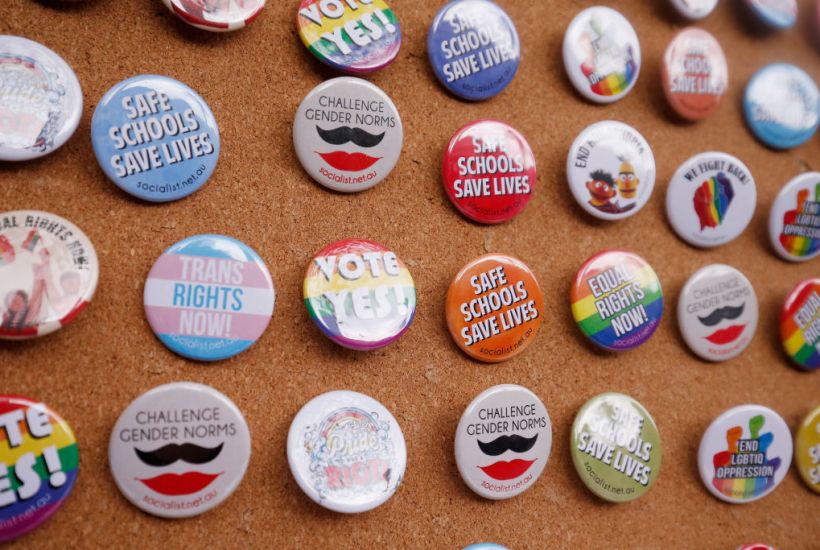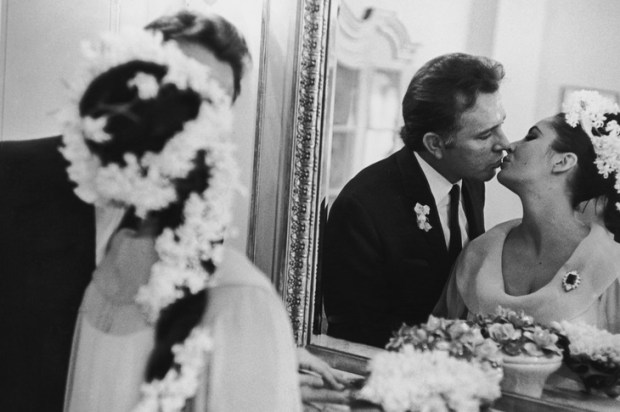I run Britain’s oldest conservative think tank, the Bow Group, and in 2012 I opposed the then Prime Minister David Cameron’s proposed Same-Sex Marriage Bill.
The Bow Group intervenes on a large number of policy issues in the defence and promotion of conservatism. I can honestly say that I have never encountered anything of the magnitude of vitriol and skulduggery that occurred as a result of our opposition to same-sex marriage in my time, nor in my knowledge of the organisation’s 65-year history. Further, in my opinion, same-sex marriage in the UK represents one of the greatest erosions of social and political freedoms in British history.
That may appear hyperbole. Here is why it isn’t.
In 2011 David Cameron announced to a stunned Conservative Party Conference that he “believed in gay marriage”, it was a bolt from the blue, at the time the leading LGBT lobby group Stonewall didn’t support same-sex marriage, the minister for equalities that brought the bill before parliament didn’t support it, the rank and file Conservative Party certainly didn’t, nor had we heard anything about it before that point.
We had, since 2004, civil partnership in the UK, which granted all of the same fundamental legal protections of the proposed Same-Sex Marriage Bill. If any amendments were required, they were either to extend the privileges of civil partnership to all citizens or to re-examine the state’s relationship with the personal and religious institution of marriage altogether. Neither of these things was pressing, especially at a time when Britain had its first coalition government since World War II, facing the largest economic crisis in its history.
At the time it was difficult to understand what was driving an increasingly febrile prime minister to doggedly pursue the issue against his own party. It has become clear in hindsight that the spread of same-sex marriage across the west has been a well-funded coordinated effort, this is not a movement that has come from a grassroots uprising or civil rights movement, but from the top down.
In the UK the hastily constructed proposal for same-sex marriage was predicated on the basis that without it gay people were in some way oppressed. Gay people in the UK earn on average more than other sexual persuasions and make up seven per cent of Britain’s parliament despite being only two percent of the population.
That is if you want to view things through the prism of sexuality, which identity politics demands we do, but true egalitarianism demands we do not.
My view of the sexuality of others is that it is none of my business. Before same-sex marriage, I appointed the first openly gay man to the Bow Group board of patrons, on the basis of his commitment to conservatism, rather than his sexuality.
My concerns as to the UK Same-Sex Marriage Bill began not born of homophobia or even burning faith. They were motivated by the same concerns that bring me to intervene on any other issue. It was a policy that offered no substantial benefits but many potential pitfalls:
1) It extended the state’s power without mandate, it was not included in any party manifesto in the 2010 general election, nor featured in the Queen’s speech laying out the legislative agenda for that parliament.
2) It created an unequal system in which only gay people would be able to have the choice between a civil partnership and a marriage
3) While a “triple lock” assured it wouldn’t, we felt it could lead to same-sex marriage in church, and the persecution of those who disagreed
4) It would severely damage the Conservative Party
Those concerns proved if anything to be optimistic. It was passed through Parliament without the support of the majority of the Conservative Party despite being proposed by a Conservative prime minister, and without any mandate from the electorate or the Queen; an event that British convention states should see the collapse of a government. The extension of civil partnership to all was dodged by the government, concerned about the tax benefits, and an inequality in the system remains with only gay people having the choice between marriage and civil partnership.
The current Prime Minister has recently called for same-sex weddings in church, it has become an issue which the Church of England look likely to eventually succumb to and the Church of Scotland already has. Since Cameron’s support for gay marriage, the membership of the Conservative Party has more than halved, with Labour now outnumbering Conservatives seven to one. Happily as a Brexit supporter, it also directly led to his loss of control of the Party and the EU referendum result.
By far the most concerning outcome is that those who oppose same-sex marriage are increasingly vilified and persecuted in British society. The leader of the Liberal Democrats, who initially opposed but later supported same-sex marriage, stepped down after the 2017 general election, saying “It is now impossible to be a Christian in politics”. He was chased around every campaign event and asked the same question “You’re a Christian, do you believe gay sex a sin?”.
As one of the rare examples of a public figure in Britain who retains his opposition, Jacob Rees-Mogg MP said recently, the Bible is very clear that having sex with someone of the same gender is a sin, but it is equally clear that having sex outside wedlock is a sin, and that man is born of sin. It is ludicrous for journalists to chase religious people around asking them to pass judgement as if they personally authored the Bible or the Torah, yet this is what now happens here routinely to those in public life who oppose gay marriage, most recently to the Archbishop of Canterbury.
I spoke of my experiences in the gay marriage campaign in the US, Spain, Austria and Russia. As a result of the latter (which was nothing other than a factual recount of what happened during the campaign at a Christian conference), I was suspended from the Conservative Party, accused of “homophobia”.
Prime minister Cameron contacted members of the Bow Group Board personally to ask them to stand down, threatening their de-selection as politicians if they refused.
I have since faced endless smear articles, death threats and hate campaigns, including accusations of being a Russian agent, a fraud, a bigot, all based on absolutely nothing other than my continued opposition to same-sex marriage.
As it was designed, it very nearly ended both my life in politics and the Bow Group itself.
It lead directly to one of the greatest scandals in British political history, the Tatler Tory bullying and harassment scandal, but whilst the attacks on myself and the Bow Group were damaging, we were able to hit back with equal force.
Like many who stood in opposition, it has cost me friends, colleagues and livelihood. I would wish it upon no one to have to go through what many public opponents of same-sex marriage in Britain have been through, however, those without a public profile are far more limited in their ability to push back.
For those like the Ashers Bakers (one of the most famous cases), or the many who have lost their jobs or faced persecution, their experience is harm and vilification without any recourse to justice or freedom of speech and expression. Same-sex marriage hasn’t saved any lives, but it has ruined many.
The reality of this process in Britain was that it was about far more than a union of two people in love. It has not been about equality for supporters of gay marriage, but inequality for those who are not.
I see that same thing happening in Australia, and I cannot warn its citizens enough that in Britain same-sex marriage has lead to a less free, more divided, less open society.
Australia is a country that has a reputation for not tolerating nonsense and has so often in its history been a stoic defender of what is good and proper, over what is fashionable and powerful.
It is, therefore, a nation that can count itself among the few that prosper from a foundation both of liberty and a Judeo-Christian heritage. It is a rare light that burns only one generation from extinction, I urge all those who value freedom of speech, thought and expression to oppose this move with all of your might.
Councillor Ben Harris-Quinney is Chairman of the Bow Group.
Got something to add? Join the discussion and comment below.
Got something to add? Join the discussion and comment below.
Get 10 issues for just $10
Subscribe to The Spectator Australia today for the next 10 magazine issues, plus full online access, for just $10.


























Comments
Don't miss out
Join the conversation with other Spectator Australia readers. Subscribe to leave a comment.
SUBSCRIBEAlready a subscriber? Log in